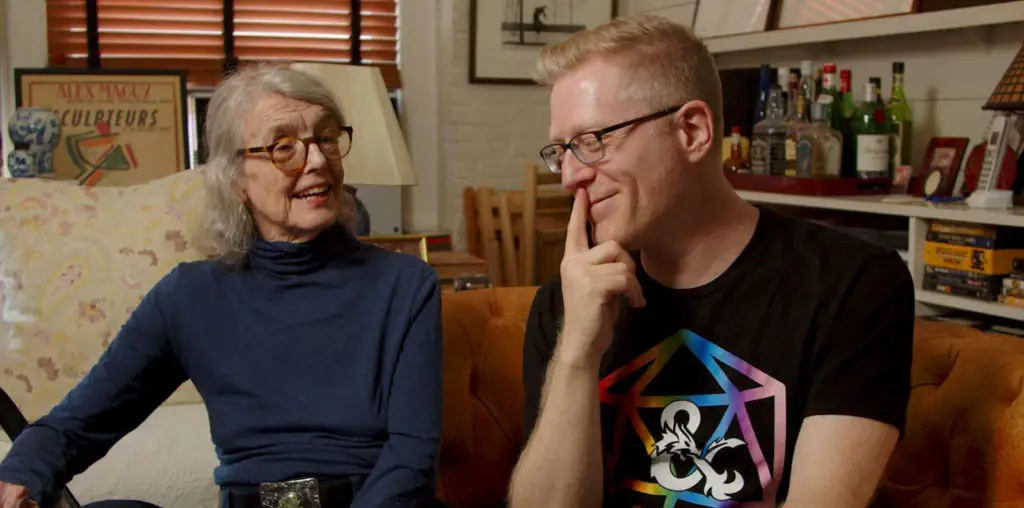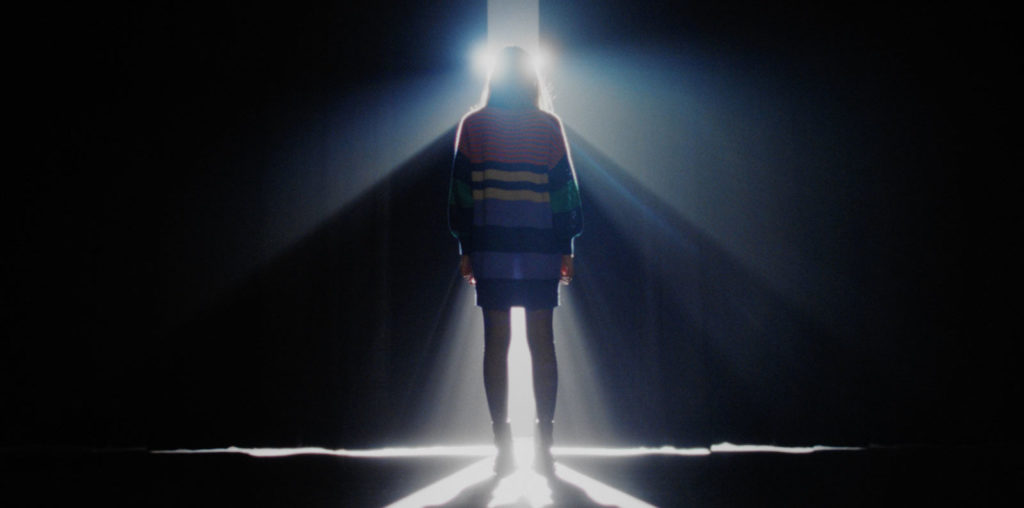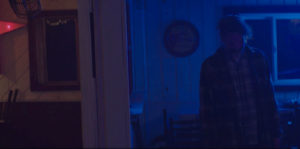
Midday Black Midnight Blue is a dramatic and visually emotional film co-directed and co-written by Samantha Soule and Daniel Talbott. It explores how a person handles grief and the shame felt from losing a loved one. Ian (Chris Stack) lives alone in a house on the edge of Puget Sound. He is grappling with his long-held unhappiness over the loss of Liv (Samantha Soule), a woman he loved dearly who died nearly two decades ago. Adding to Ian’s disparagement, the non-linear storytelling offers an insight into a decaying state of mind due to the inability or capability to heal from the emotional trauma that is essentially a broken heart.
As the film moves back and forth between the past and present while creating the reality of how Ian exists, we catch glimpses of a deep romance and extreme jealousy, animosity, and foggy recollections. At times, it’s hard to like the characters because of their actions and their lack of communication. Liv is self-centered, self-serving, and rough around the edges, or so it appears. Ian is disheveled and oddly pensive, even before her death, and after, he feels Liv abandoned him, but did she? When a reality check from Liv’s sister comes along, Ian’s world seems to be that of a mentally disabled person who doesn’t want to wake up from the haze they live in. It isn’t entirely clear.
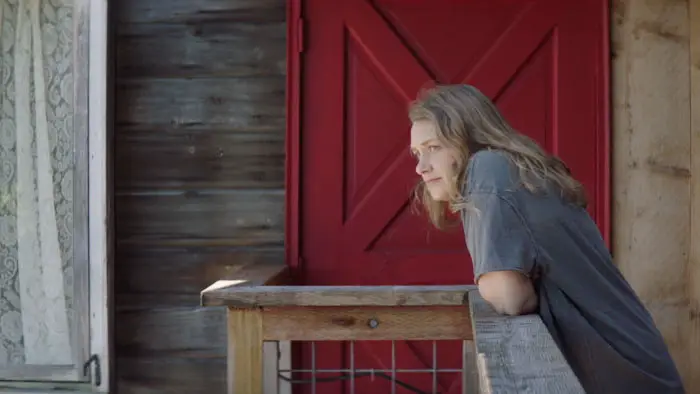
“…a free spirit with a past who does not want to be tied down in life or love, which Ian cannot accept.”
Through recall, the story of Ian and Liv appears to be a romantic and beautiful relationship while living by the sea. Yet, it’s blustery and moody. They make meals, walk on the rocky beaches and enjoy one’s company until they don’t. Liv is a free spirit with a past who does not want to be tied down in life or love, which Ian cannot accept. Liv plays out her life the only one she can, where she and another man have relations in front of him, or so it seems. But, she is tormented, which we can only abstract from her Sylvia Plath scene of submerging herself fully clothed into the water with conviction.
Grief is isolating, an experience in holding space, much like water, a continuous visual theme and metaphor throughout Midday Black Midnight Blue. It is repeated at all levels and reminded through the running line, “Never let anyone tell you when something is an ocean when it’s a f*****g lake.” Although this may be a disjointed scenario, it does come together toward the end, where Ian and Liv are at sea on a sailboat, which brings the ideas and visuals into a somnambulistic state. Here, the filmmakers cement the themes in their best form, with bodies floating in fog-covered water and moving between waves. It is Ian’s grief that is being played out. And throughout this cinematic experience, music by Grammy Award-winning composer Nora Kroll-Rosenbaum adds to the feel and appearance.
Although you are dropped into Ian’s grieving experience, that wave that comes back and forth, co-director Soule best describes Midday Black Midnight Blue “as the internal plate tectonics of change, and when there are big adventurous moments in our lives, and sometimes they occur invisibly inside of us.” Also of note is that surviving the pandemic allows us more insight into isolation, grief, and healing. However, the film’s heady and deep-rooted sentiments are not for every audience but for those needing an outlet to give their feelings and beliefs visual perception and identity, there’s something here. The film works best on a subconscious level.
For more information, visit the official Midday Black Midnight Blue site.
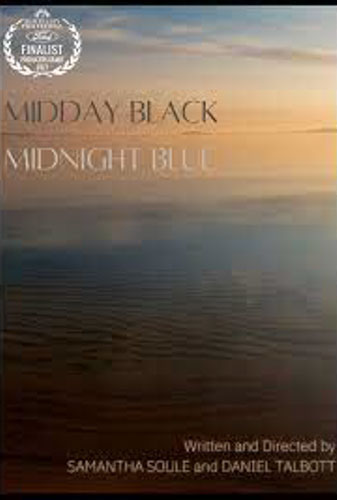
"…works best on a subconscious level."
